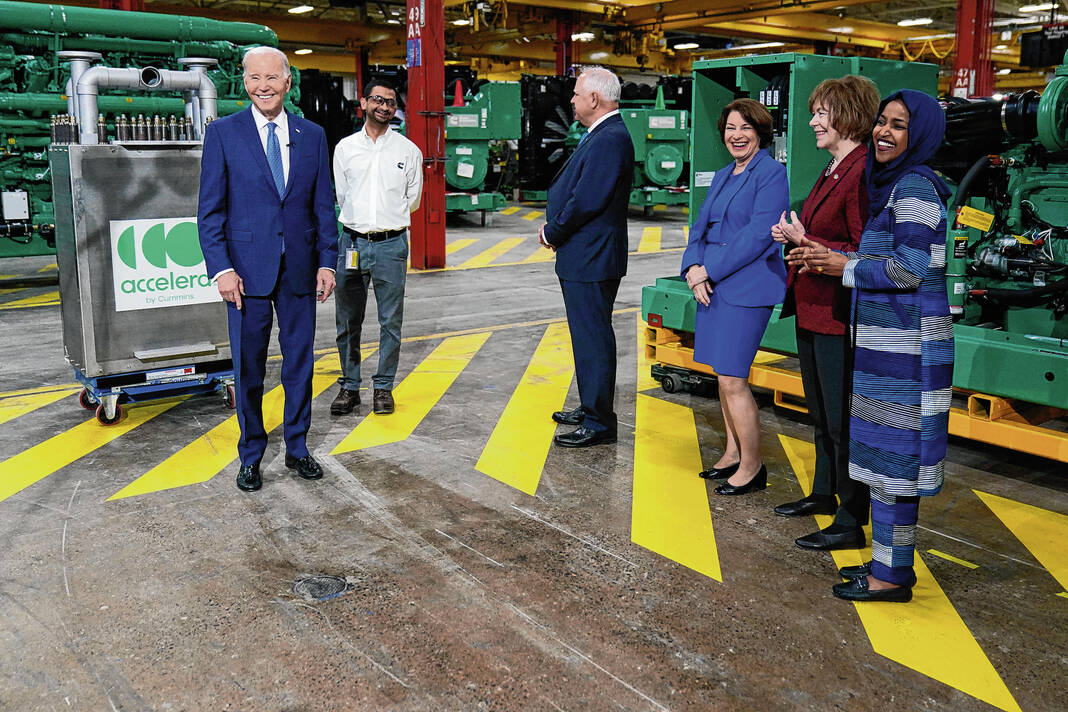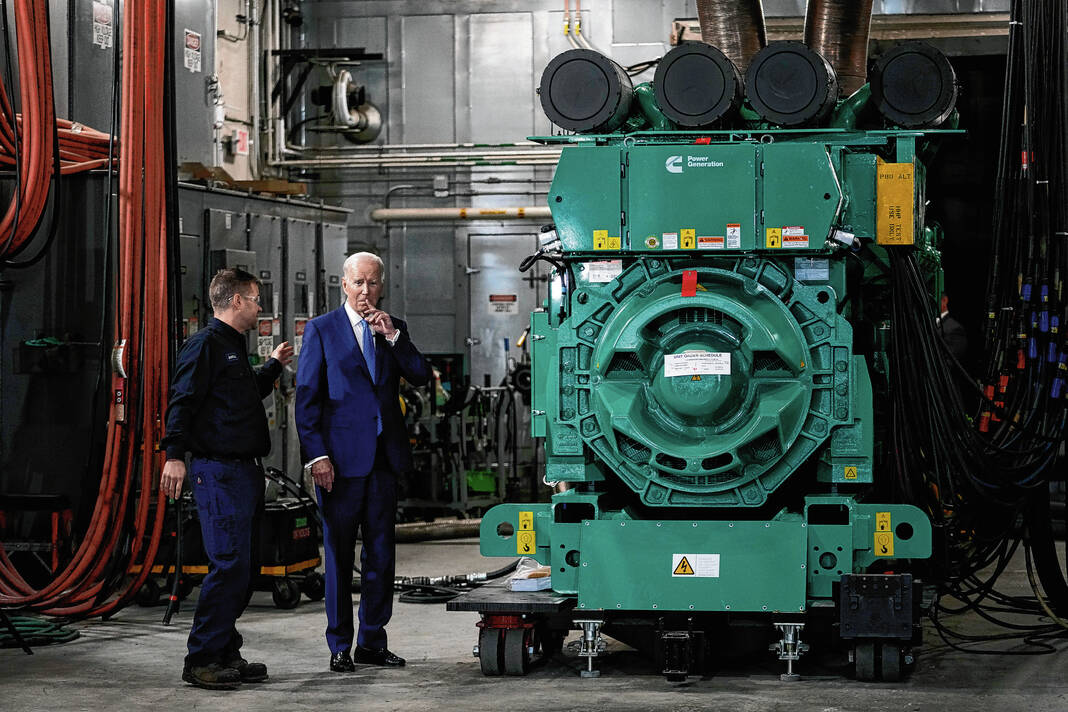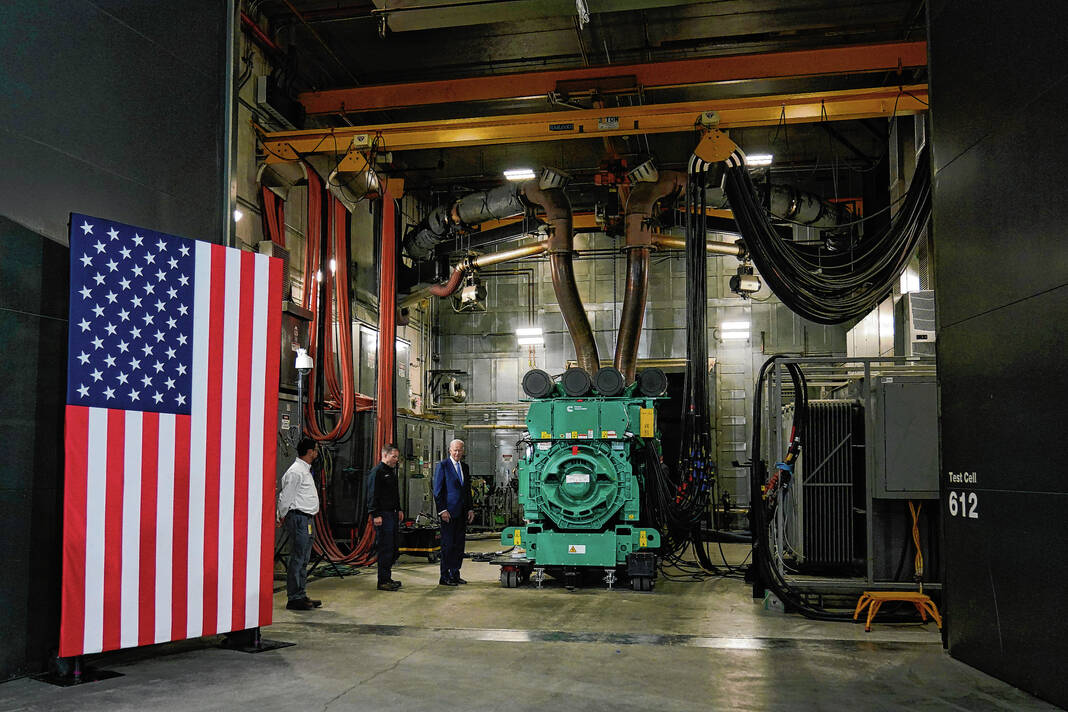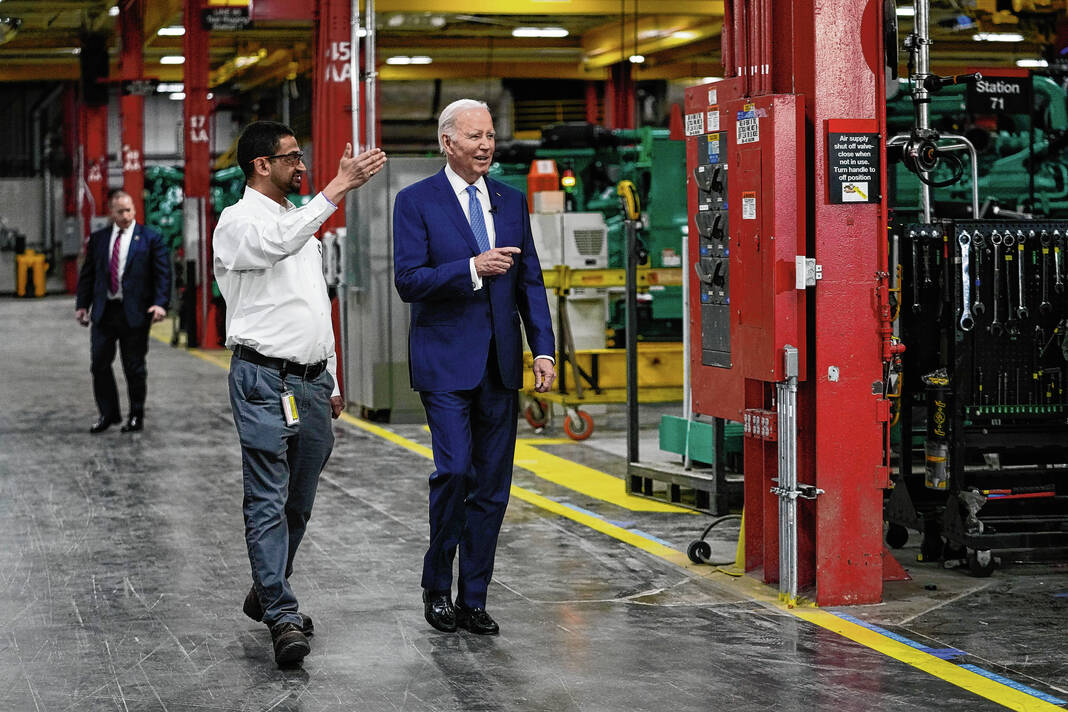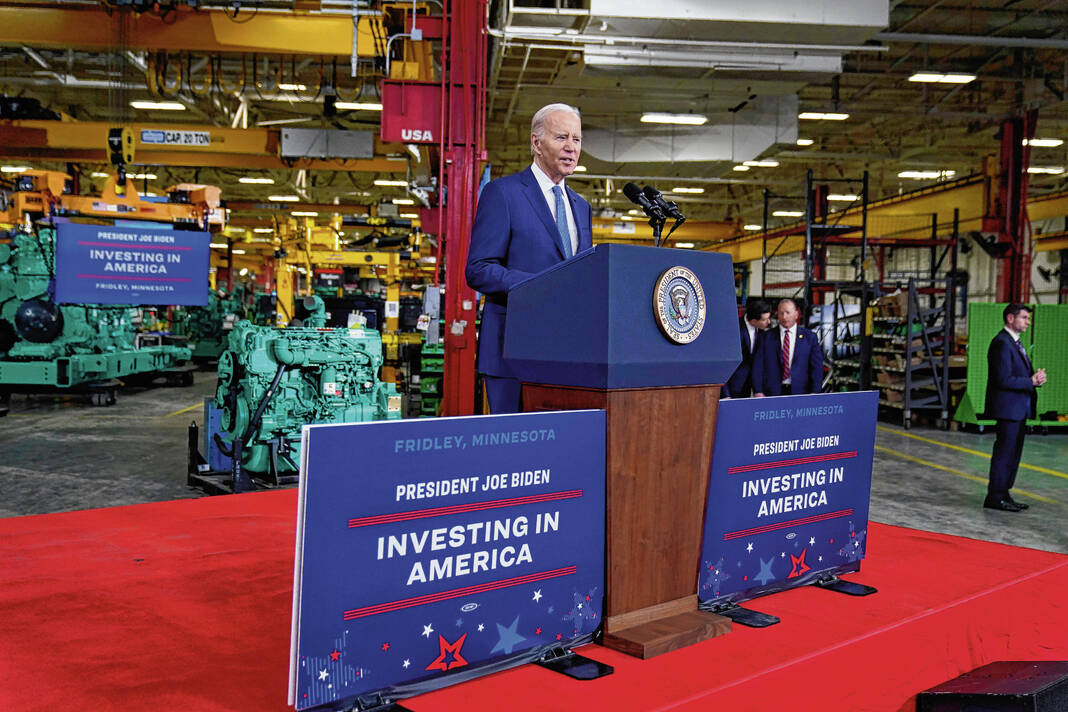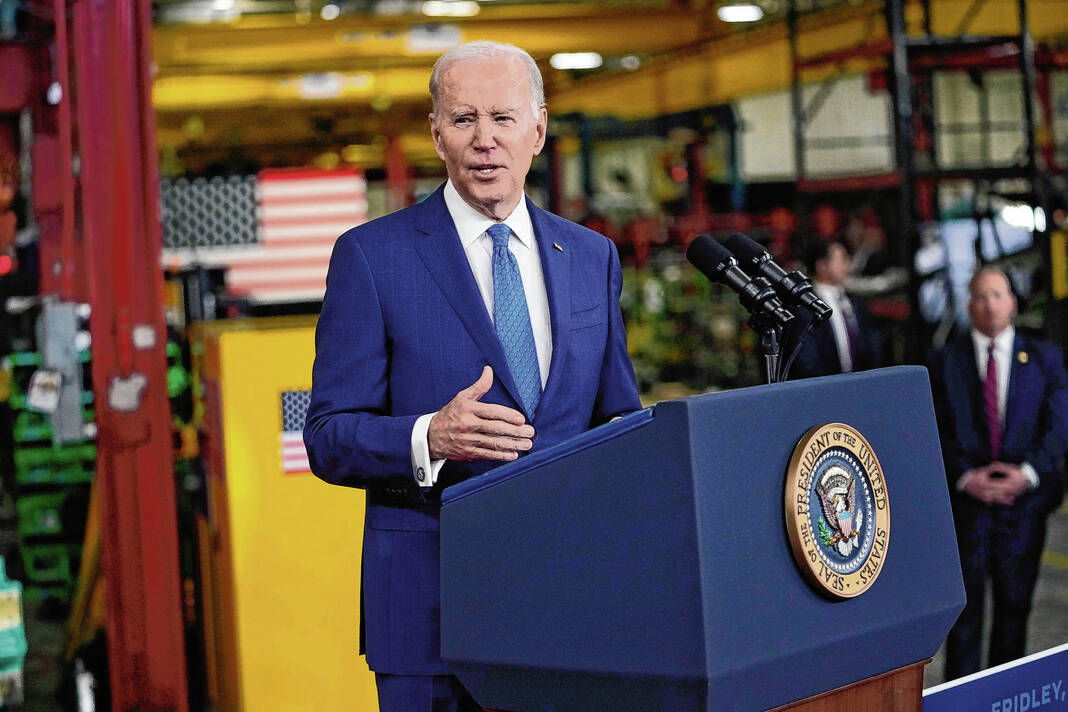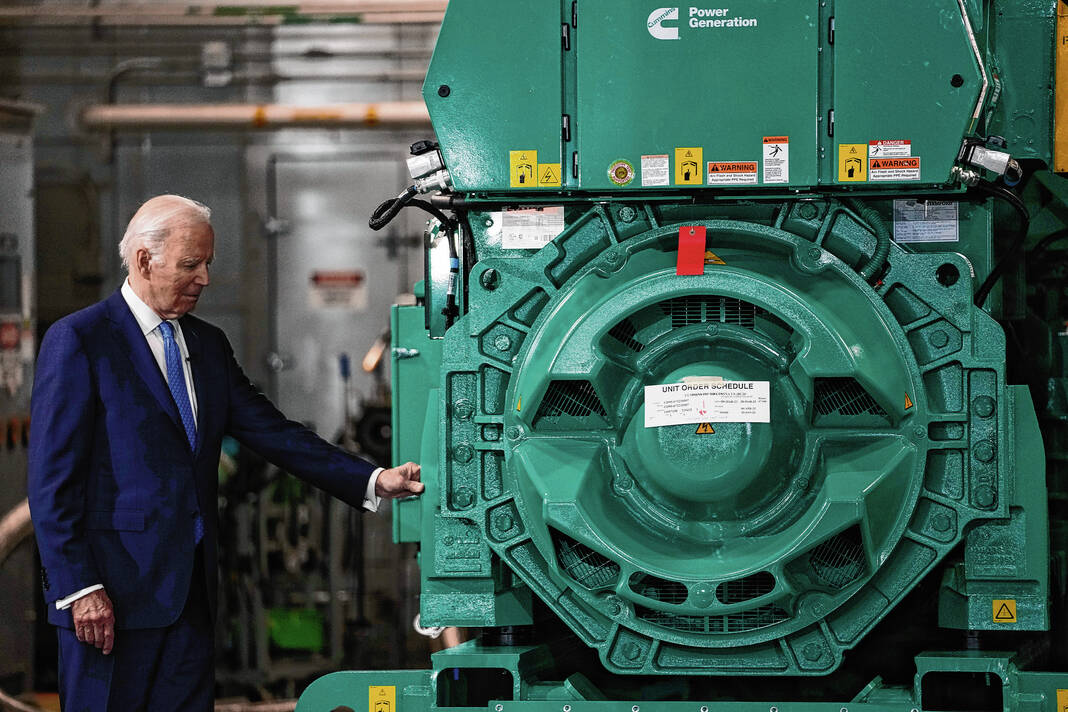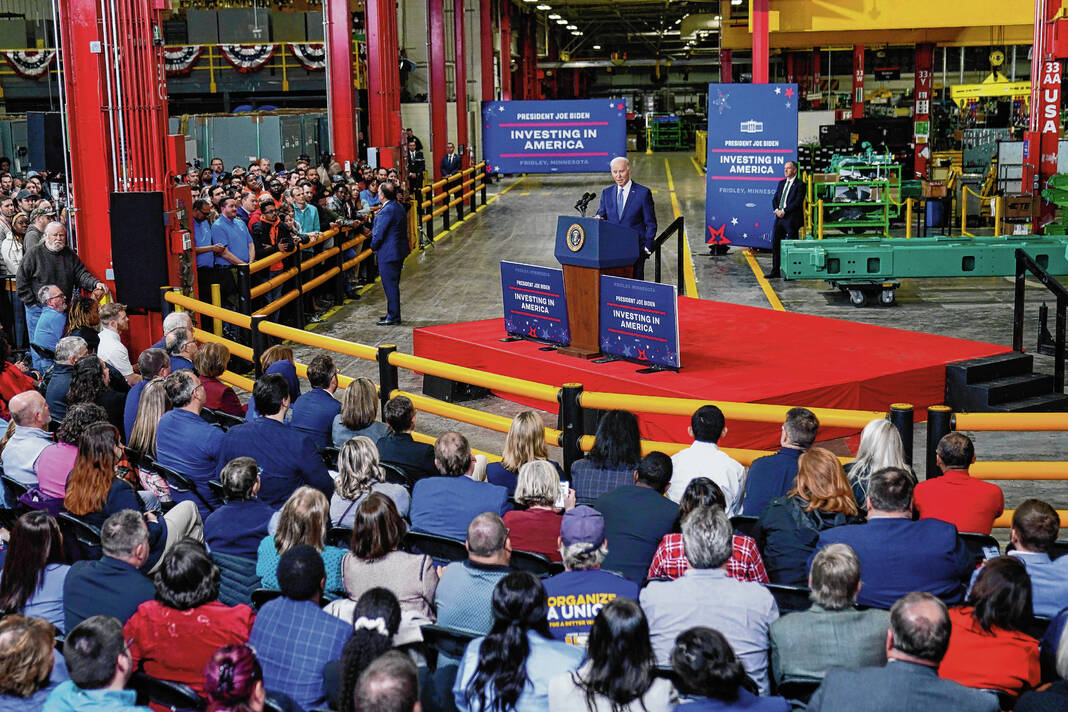President Joe Biden visited a Cummins facility in Minnesota on Monday to emphasize his administration’s economic agenda and tout the Columbus-based company’s efforts to ramp up its hydrogen production business in the United States.
Biden visited the facility in Fridley, Minnesota, a Twin Cities suburb, and spoke for nearly 30 minutes as part of a three-week tour to highlight what he views as his signature legislative accomplishments, including the Inflation Reduction Act.
During his speech, Biden said Cummins plans to hire an additional 100 employees and retrain 600 more who currently make diesel engines at the Minnesota facility to make clean-energy technology.
In October, Cummins announced plans to dedicate 89,000 square feet of the Minnesota facility to start producing electrolyzers in the United States in what the company described as a milestone in its efforts to ramp up its hydrogen production business in the coming years amid a global push to curb greenhouse gas emissions.
Electrolyzers are devices that can use electricity to split water molecules into hydrogen and oxygen. The hydrogen can then be used to generate power for industrial, chemical and other applications.
Cummins said Monday that it expects electrolyzer production to start at the facility in just a few weeks.
“When Cummins first manufactured hydrogen electrolyzers, they had to make them overseas,” Biden said. “…But now, thanks to the Inflation Reduction Act with the tax credits for renewable energy, Cummins is going to manufacture these electrolyzers here in America for the first time. We’re standing now in a new production line for clean-energy technology.”
Coinciding with the president’s visit, Cummins announced plans to invest more than $1 billion across its engine manufacturing network in Indiana, North Carolina and New York to upgrade facilities to support fuel agnostic engine platforms that will run on low carbon fuels, including natural gas, diesel and eventually hydrogen.
This investment is intended to retain the thousands of current engineering and manufacturing jobs and support the creation of hundreds of new jobs across the three states. Information about the additional investment in Indiana will be made public later, the company said.
Biden’s visit was part of his Investing in America tour, which seeks to highlight the impact of legislation passed last year, including the Inflation Reduction Act, CHIPS and Science Act, Bipartisan Infrastructure Law and American Rescue Plan, according to a statement from the White House.
The congressional delegation representing Columbus — Rep. Greg Pence, R-Indiana, Sen. Todd Young, R-Indiana, and Sen. Mike Braun, R-Indiana — largely opposed the four bills, according to congressional records.
The only support for any of the bills among the delegation came from Young, who voted in favor of the CHIPS and Science Act. Pence didn’t cast a vote on the Inflation Reduction Act.
Cummins, however, said the bills played a key role in the company’s decision to manufacture products in the United States.
“The historic investments included in those pieces of legislation played a key role in our decision to manufacture products here in the U.S., creating more clean-tech jobs and positively impacting our communities,” Cummins President and CEO Jennifer Rumsey said in a statement Monday.
It also wasn’t the first time Biden has crossed paths with Cummins since taking office.
In August, Rumsey was among a group of business and labor leaders who met virtually with Biden to discuss the legislation, telling the president that the bill would be good for the economy and the environment.
During the meeting, Rumsey told Biden she sees the Inflation Reduction Act as an opportunity to increase U.S. manufacturing capacity, create high-paying jobs in the United States and would be “one key piece of accelerating our journey and transitioning our applications to technologies of the future like battery, fuel cell, electric and green hydrogen.”
In January 2022, former Cummins Chairman and CEO Tom Linebarger joined Biden and the top executives at nine other major corporations, including General Motors, Ford, Microsoft and HP, at an event at the White House in support of the Build Back Better Act, which included, among other things, $55o million in spending and tax credits aimed at promoting clean energy.
During the meeting, Linebarger spoke for about 2 minutes, calling climate change “the existential crisis of our time” and expressing optimism that Cummins can make “a big investment and a big effort” to address climate change.
“But we can’t do it alone,” Linebarger told the president. “The truth is we need investments. Tax credits in the Build Back Better Act for hydrogen and clean trucks will play a big role in getting all of us to invest in infrastructure and other things that we need to get this going.”
Rumsey, who was Cummins’ president and chief operating officer at the time, also joined Biden and a group of business and political leaders on the White House lawn in November 2021 as the president signed the Bipartisan Infrastructure Bill into law.
“There was a piece of this infrastructure bill that was focused on starting to build out an infrastructure that we think is key for decarbonization and our country,” Rumsey told The Republic after attending the bill signing. “It includes substantial investment in hydrogen infrastructure and charging infrastructure and also recognition of the importance of low-carbon fuels. And when we think about the work ahead for our country and our world to really decarbonize some of these sectors, it requires the infrastructure to come together with the advancement in the technologies on the product side, and so we hope that this will be a catalyst toward driving that decarbonization path.”
Biden’s visit also comes nearly a month after Cummins launched Accelera by Cummins as its zero-emissions technology brand.
The new brand, which used to be called Cummins’ new power business segment, includes Cummins’ growing electrified power and hydrogen portfolio and represents much of its efforts to invest in technologies that seek to curb greenhouse gas emissions.
In a letter to shareholders last week, Rumsey said the company’s business and environmental strategies are aligned to capture the growth opportunity that decarbonization presents, according to filings with the U.S. Securities and Exchange Commission.
Currently, Accelera makes up a small percentage of Cummins’ total revenue, though the segment’s revenue before interest and tax is growing, according to SEC filings.
Last year, the business segment reported $198 million in sales, up from $116 in 2020 and $72 million the year before that, according to the company’s annual reports. And company officials have said they expect the business segment’s revenue to continue growing in the coming years.
Rumsey said last month that the company is projecting Accelera will generate $350 million to $400 million in revenue this year. Cummins officials projected last year that the business segment will generate $6 billion to $13 billion in revenues by the end of the decade.

